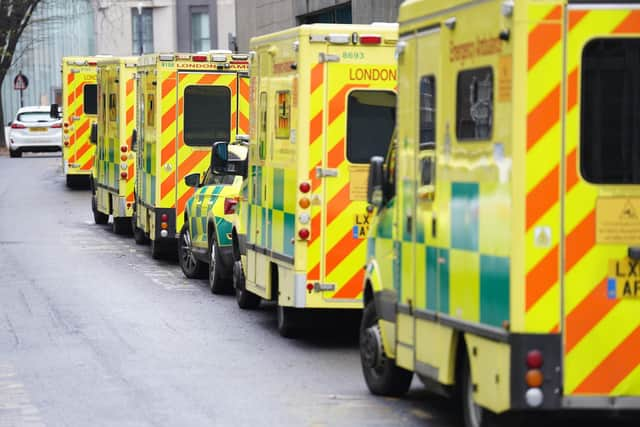Increasing A&E wait times show the need to head off more issues down the line - The Yorkshire Post says
The average response time in December for ambulances dealing with the most urgent incidents, defined as calls from people with life-threatening illnesses or injuries, was 10 minutes and 57 seconds, the worst performance on record against a target of seven minutes.
This can’t just be blamed on the pandemic. What we are seeing is underlying issues in our healthcare system coming to the fore.
Advertisement
Hide AdAdvertisement
Hide AdThe Government has called for more efficient operations but years of decline mean that it's not possible. In parts of the country numerous ambulance stations have been closed over the years.


Recruitment is a real issue and will only get worse if pay and working conditions continue to be in the state that they’re currently in with up to 25,000 ambulance workers walking out on strike in a dispute with the Government over pay.
More strikes are scheduled, with nurses due to walk out next Wednesday and Thursday, and another ambulance strike on January 23.
If the Government is not careful then the crisis that has enveloped the NHS this winter will become a regular feature of the health service. And it is ordinary people who will suffer.
Advertisement
Hide AdAdvertisement
Hide AdWhile it rushes to find sticking plasters to the current crisis, the Government also needs to start looking longer-term at how it can head off similar situations arising in the future.
Around one in 10 NHS posts are currently vacant and the UK has fewer doctors and nurses than many of its Western European counterparts.
That shortage means medical professionals are not able to dispense the level of care that the public needs and simply leaves them overstretched.